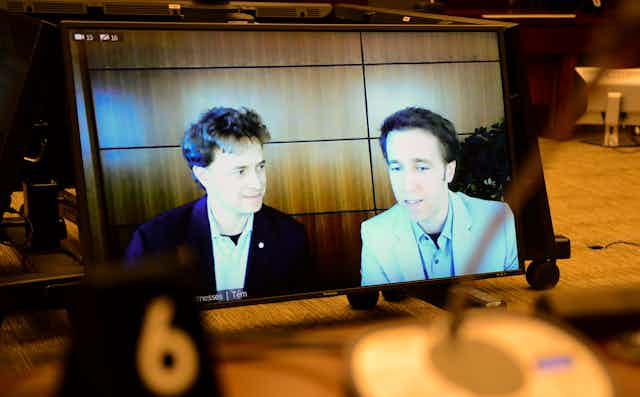The scandal around the federal government’s questionable allocation of a student grant program to WE Charity has led to the demise of the organization’s operations in Canada.
That’s prompted a renewed debate about the trustworthiness and accountability of non-governmental organizations (NGOs).
When a crisis of NGO trustworthiness emerges, the public usually demands more oversight and formal accountability from the organizations. But does this actually lead to increased trust and transparency among donors, NGOs and the general public?
Read more: How to help the public trust NGOs again
I look at this question using previous research on trust and accountability inside the NGO sector.
NGO trustworthiness
Non-governmental organizations obtain their legitimacy largely from the trust that the general public bestows upon them. That means that NGO trustworthiness — defined as the perceived ability, benevolence and integrity of these organizations — is a paramount element to guarantee the success of NGO welfare-delivery projects.
NGO trustworthiness becomes more relevant if we consider that most of these organizations fund their operations from taxpayer dollars, which is channelled through governmental agencies that act as donors.
Governmental donors establish accountability measures that rely on extensive administrative requirements and bureaucratic demands. But they often doing little to enhance project activities or to reach better co-operative relationships with NGOs.

Recent research has shown that the current model of accountability in the NGO sector relies too much on a rational view of trust that conflates transparency and authenticity with bureaucratic accountability.
The WE Charity scandal demonstrates that despite the stringent accountability requirements that are dominant in the sector, relationships may fall apart due to the lack of real transparency that sustains the public’s trust. Current accountability models need to be reconsidered to recognize that trust is not only built on oversight mechanisms, but also on emotional components.
Emotional elements of trust
Trust is usually defined as the positive expectations regarding the actions of others. Sociological research on trust highlights that this concept goes beyond the use of tangible evidence to predict the behaviour of others and involves emotions.

Trust is not a simple tool used to make rational predictions about the actions of a counterpart. Instead, trust has an emotional dimension involving shared values, principles, goals and beliefs. These shared values allow people take leaps of faith when forming a co-operative relationship.
Simply put, no matter how many administrative and oversight requirements we impose on an NGO, we need emotional elements, such as shared principles and goals, that connect us. Trust is a mix of informational and emotional elements that increase the perceived trustworthiness about the partner. Such perceived trustworthiness is sustained through communication and transparency.
Communication, transparency as trust enablers
The demise of WE Charity and the public scrutiny on the Liberal government started with the failure of Prime Minister Justin Trudeau to recuse himself from the discussions about the award of the student program, as well as the lack of disclosure of questionable financial ties between WE Charity and Trudeau’s family.
Aside from any political retaliations from opposition parties, what appears certain is that both the government and the charity failed to properly communicate and be completely transparent with the public.
But transparency here should not be understood as a just an act of dutiful compliance with regulations and oversight demands, but rather as the natural outcome of nurturing relationships where the important element is the common goal that connects everyone involved.
The preliminary results of my research into how trust and accountability interact in relationships in the NGO sector suggests that trust is enabled and enhanced by communication and transparency. That transparency is not understood as the fulfilment of bureaucratic accountability measures and administrative requirements, but instead as voluntary acts of openness and disclosure about important events that may impact the relationship.
In the case of WE Charity, it’s precisely the lack of communication and transparency with the public that led to the ultimate downfall of the intended collaboration.
Trust eroded
On paper, WE Charity could have been the best partner to implement the student grant program. It may have met all the requirements in terms of capacity and operational infrastructure, and it may have had the best intentions to connect students with volunteering opportunities.
But the failure to be transparent eroded the public’s trust and led to its organizational demise.
This suggests that stringent oversight measures — which in the current model of NGO accountability usually translates into bureaucratic paperwork — do not necessarily lead to enhanced trust and transparency in the relationships among donors, NGOs and the public.
Accountability requirements for NGOs are necessary — they help stakeholders check on the activities undertaken by these organizations. But these requirements should really focus on transparency, not as an exercise of simple box-checking. This will ultimately lead to enhanced trust relationships with NGOs.

